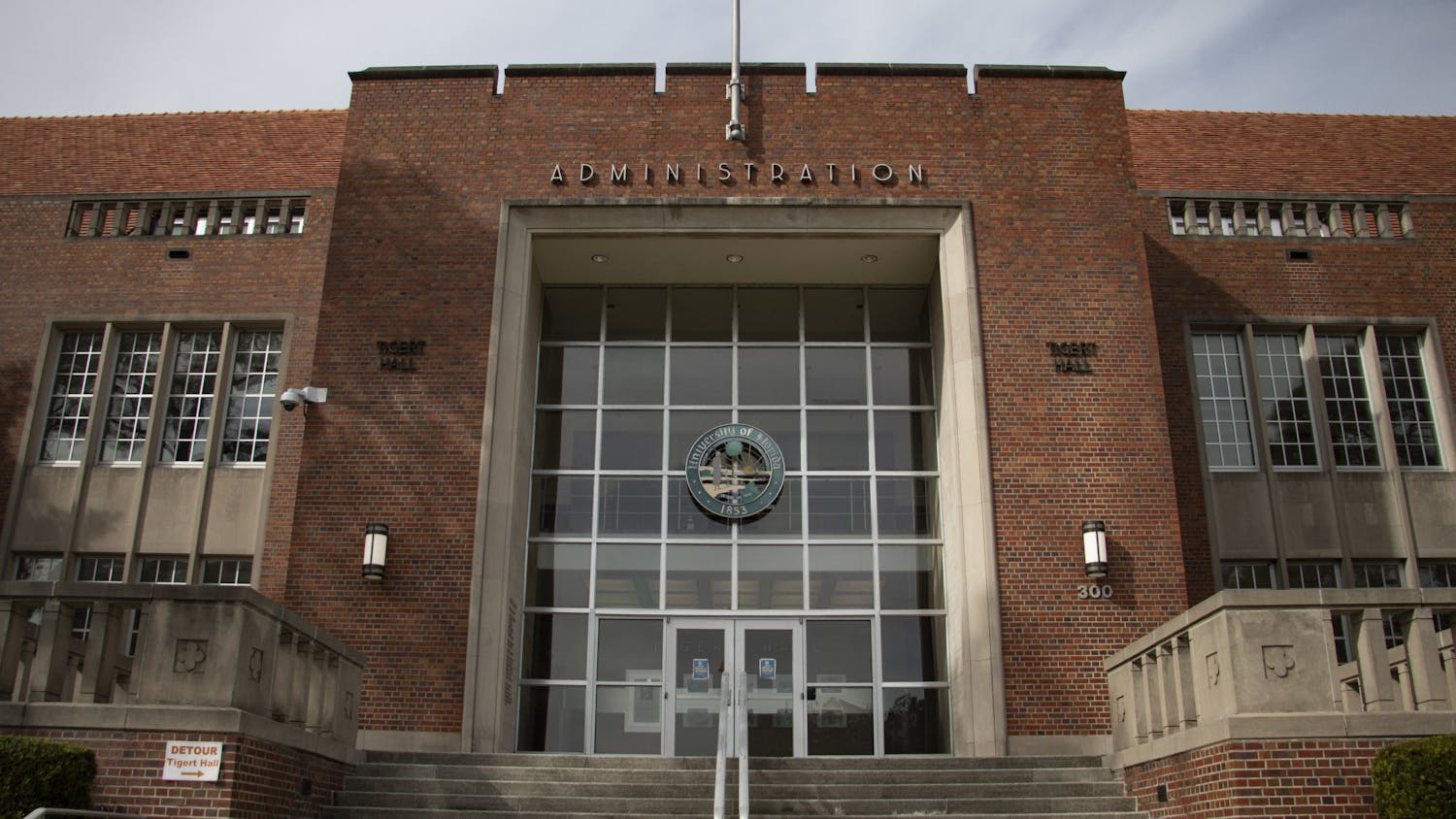As the fall semester begins and visions of football dance in your head, you can give yourself a pat on the back for getting into the No. 17 public university in the country, according to the U.S News and World Report.
You may not realize this, wide-eyed freshmen, but that's four spots lower on the list than last year, when UF was ranked No. 13. Why the sudden drop? Our fearless leader, UF President Bernie Machen, says it's because the four schools we tied with last year "spread out." But all four of those schools finished ahead of us this year - what gives?
We've heard plenty of reasons: not enough money, too few teachers, too drunk (we're ranked the No. 4 party school by The Princeton Review), the dog ate our term papers causing us all to get really bad grades, etc.
Look, we've heard it all before, and those excuses aren't going to work anymore.
Machen says it's not about the rankings anymore, but about making UF "the best public university (it) can be." We've heard that one before, too. He started saying that after he was railed for insisting, almost to the point of absurdity, that UF was worthless without a spot in the Top 10.
So Bernie's serenity and calm regarding this blow to our ranking has really nudged our auras. Are we to believe numbers are no longer such a big deal? Or maybe it's just that the battle for the tuition differential fee has been won, so Bernie can sit back in his plush leather (we're assuming) desk chair in Tigert Hall and relax for a few months.
We sure hope he stops worrying about rankings for a good, long time. They are nothing more than university presidents subjectively compiling their opinions on "up to 15 indicators of academic quality" for 262 universities, 164 of them public. The indicators are things like SAT scores, student-faculty ratio, and the alumni giving rate.
Many of these indicators are arbitrary, especially the three listed above. Why is the alumni giving rate such a big deal? Wouldn't a better indicator be the percentage of graduates who apply to and are accepted to graduate school? Or the percentage of students with grade point averages above 3.0? We can't imagine why the predicted graduation rate - yes, predicted - is so important.
That's why we encourage UF to lay off the rankings race. On June 19, 80 liberal arts college presidents met to discuss a possible boycott of the rankings report. Lloyd Thacker, executive director of The Education Conservancy, said "rankings have reduced students to consumers, education to product, and gaining admission into college a high-priced game that has to be played."
But UF doesn't need a ranking to know it's great and neither do most of the schools at the top of the list. We definitely don't need it to recruit great students. So now it's time for us to look away from the lists and look at our campus. No ranking will tell us exactly what we need to fix. We already know what will make our already great university even greater: more advisers, more professors, more courses and more great students - oh wait, we've got that one covered.
Welcome to UF.





